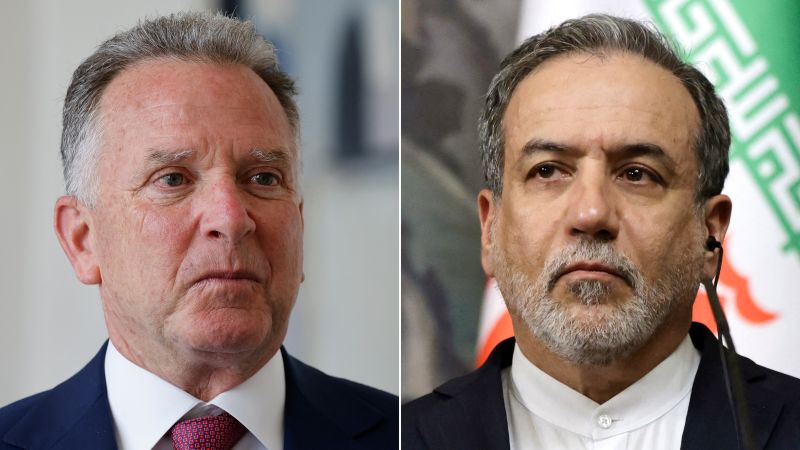**Ongoing Nuclear Talks Between the US and Iran**
In an optimistic yet cautious atmosphere, leaders from the United States and Iran have recently concluded a third round of discussions concerning Iran’s nuclear program. Conducted in Muscat, Oman, this pivotal meeting saw key diplomatic figures, including Iranian Foreign Minister Abbas Araghchi and US Middle East Envoy Steve Witkoff, at the forefront. These discussions follow a series of talks aimed at finding common ground amidst significant tensions surrounding Iran’s nuclear capabilities.
The Iranian and US delegations participated in what has been described as an essential and methodical dialogue lasting over four hours. Following the conclusion of these talks, a senior administration official expressed satisfaction with the outcomes, indicating that although considerable challenges remain, “further progress was made on getting to a deal.” They also announced plans to reconvene in Europe, acknowledging the role of Omani partners in facilitating these crucial conversations.
Amidst this climate of cautious optimism, expert analysis has categorized this round of discussions as particularly challenging. Specifically, the negotiations address Washington’s requirements alongside Iran’s expectations, making the deliberative process more intricate. Araghchi himself expressed a blend of hope and caution when he acknowledged ongoing significant differences in both major issues and detailed aspects of the pact. He emphasized the need for perseverance in the negotiations.
Araghchi pointed out that the current discussions differed from prior ones in terms of seriousness. The environment was described as calm and organized, providing an ideal backdrop for detailed and technical dialogue. He noted that expert-level negotiations produced meaningful interactions that could potentially bridge some gaps between the two nations.
As the talks unfolded, the persistent divisions concerning specific elements of Iran’s nuclear ambitions were evident. The US and Iranian delegations had previously met for high-level discussions, instilling a tempered optimism toward progressing diplomatically. Oman, serving as the diplomatic intermediary, has been pivotal in hosting these dialogues since their inception earlier in the month.
Oman’s Foreign Minister Badr bin Hamad Al Busaidi confirmed that discussions between the two nations will extend into the following week, reinforcing the commitment to pursuing a continued dialogue. However, the backdrop of these talks is colored by stark threats, including President Donald Trump’s declarations of potential military action against Iranian nuclear facilities should negotiations fail.
The stakes have escalated further with statements made by Secretary of State Marco Rubio, asserting that the US does not support Iran’s aspirations for self-enrichment of nuclear materials. Rather, the US advocates for Iran to import nuclear fuel designated for its civilian energy programs. Conversely, Iranian authorities have maintained that their right to enrich uranium remains non-negotiable—a pivotal issue that adds complexity to the negotiations.
Historically, Iran and world powers, including the US, brokered the Joint Comprehensive Plan of Action (JCPOA) in 2015, which sought to limit Iran’s nuclear activities in exchange for the lifting of economic sanctions. However, the accord was rendered null by Trump in 2018 during his presidency, leading to Iran exponentially increasing its uranium enrichment efforts, heading towards potential weaponization levels.
Currently, the Biden administration aims to establish a “stronger” agreement compared to the original 2015 deal. Yet, US officials have exhibited inconsistencies in their demands as negotiations have evolved. This fluidity poses challenges not just for diplomatic resolutions but also for the geopolitical stability within the region.
In conclusion, while there has been notable progress in talks between the US and Iran regarding their nuclear programs, substantial hurdles still remain. As the two nations prepare for further dialogue in the coming weeks, the world watches closely, hoping for a peaceful resolution to a conflict that has far-reaching implications both regionally and globally.



